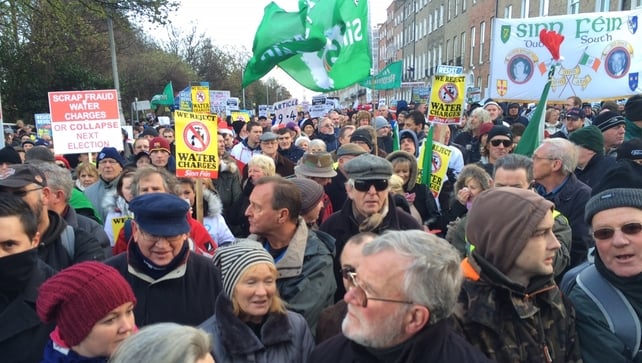 |
| Water protest in Dublin |
On 15 July the government revealed that, of Ireland’s approximately 1.5 million households, only 645,000, or about 43 percent, had paid the first water bills issued by the new body.
Facing down threats of tax increases or of having water supplies cut off, and accusations from an increasingly hysterical government that those opposed to water charges were “fascists”, "ISIS" and a “sinister fringe”, more than half of Irish households have refused to pay the hated new charges.
Perhaps expecting a poor return, the government has already rammed legislation through the Dáil that will allow unpaid bills to taken from people’s wages and welfare payments.
Mary Lou McDonald TD, Deputy President of the anti-austerity republican party Sinn Féin, welcomed the low payment figures.
“This is a serious embarrassment to the government who have done their best to denounce and belittle the resistance to their introduction of water charges,” she said.
“The defiance of the Irish people tells them in no uncertain terms that water charges are unwelcome and that they will not be cowed by threats.”



